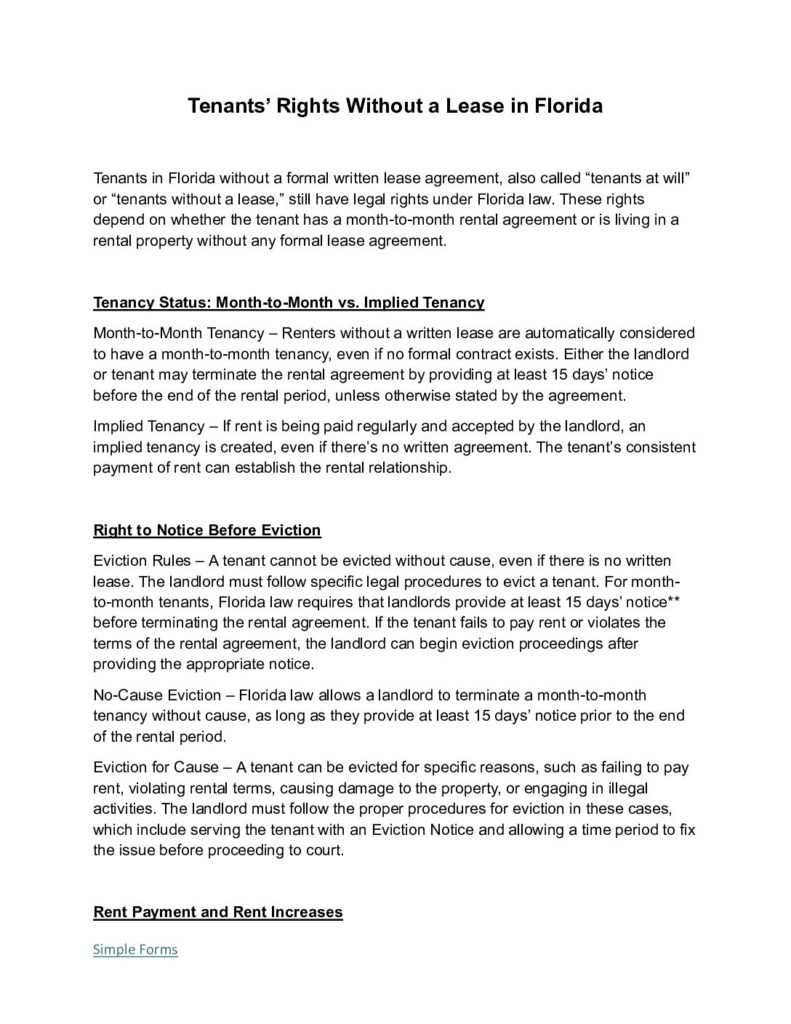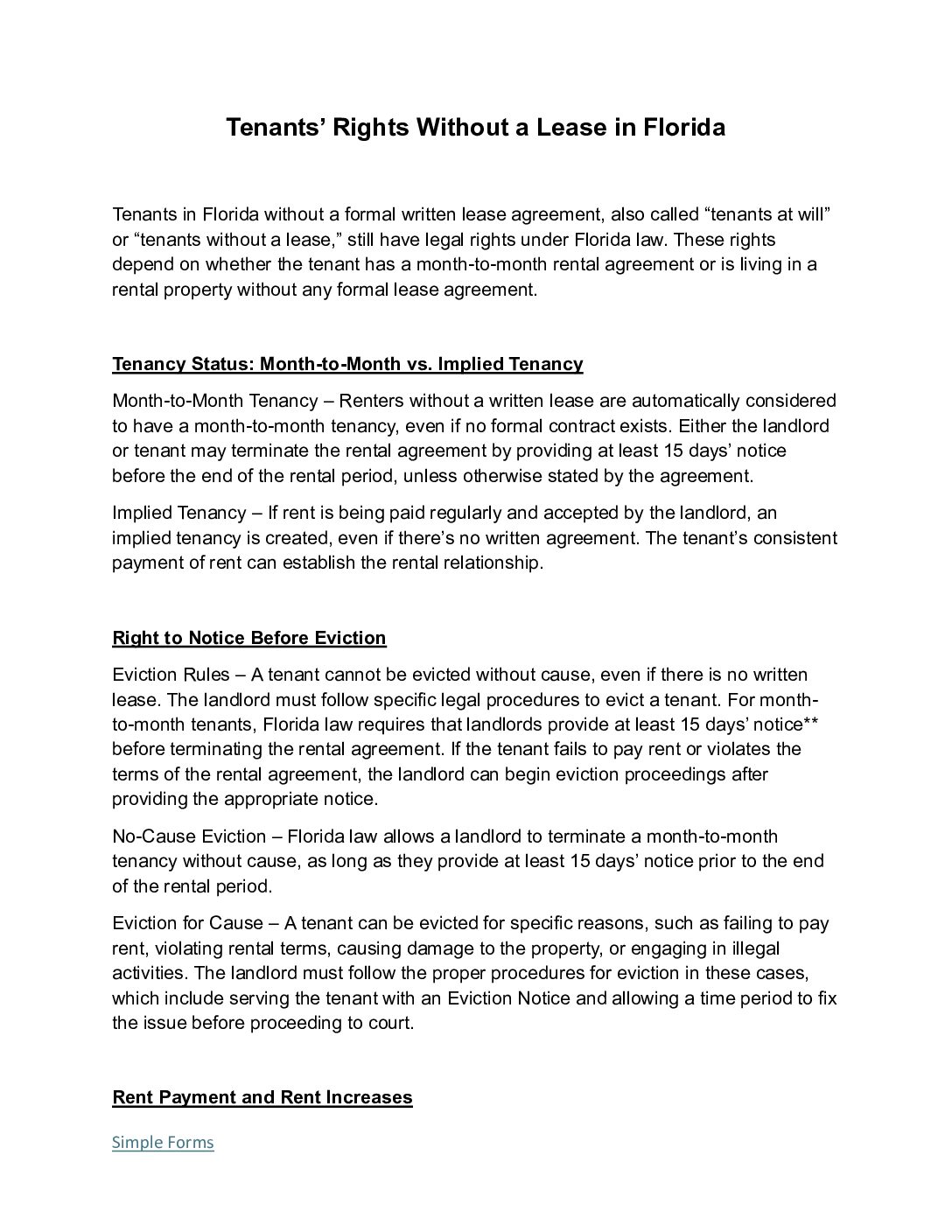What are tenants’ rights without a lease in Florida?
Tenants in Florida without a formal written lease agreement, also called “tenants at will” or “tenants without a lease,” still have legal rights under Florida law. These rights depend on whether the tenant has a month-to-month rental agreement or is living in a rental property without any formal lease agreement.
Below are key rights for tenants without a lease in Florida:
Tenancy Status: Month-to-Month vs. Implied Tenancy
Summary (Florida Statutes § 83.57):
- Month-to-Month Tenancy – Renters without a written lease are automatically considered to have a month-to-month tenancy, even if no formal contract exists. Either the landlord or tenant may terminate the rental agreement by providing at least 15 days’ notice before the end of the rental period, unless otherwise stated by the agreement.
- Implied Tenancy – If rent is being paid regularly and accepted by the landlord, an implied tenancy is created, even if there’s no written agreement. The tenant’s consistent payment of rent can establish the rental relationship.
Right to Notice Before Eviction
Summary (Florida Statutes § 83.57, Florida Statutes § 83.56):
- Eviction Rules – A tenant cannot be evicted without cause, even if there is no written lease. The landlord must follow specific legal procedures to evict a tenant. For month-to-month tenants, Florida law requires that landlords provide at least 15 days’ notice** before terminating the rental agreement. If the tenant fails to pay rent or violates the terms of the rental agreement, the landlord can begin eviction proceedings after providing the appropriate notice.
- No-Cause Eviction – Florida law allows a landlord to terminate a month-to-month tenancy without cause, as long as they provide at least 15 days’ notice prior to the end of the rental period.
- Eviction for Cause – A tenant can be evicted for specific reasons, such as failing to pay rent, violating rental terms, causing damage to the property, or engaging in illegal activities. The landlord must follow the proper procedures for eviction in these cases, which include serving the tenant with an Eviction Notice and allowing a time period to fix the issue before proceeding to court.
Rent Payment and Rent Increases
Summary (Florida Statutes § 83.56):
- Paying Rent – Even without a lease agreement, tenants still have to pay rent. Tenants must make sure that the rent is paid on time and consistent. If rent is not paid on time, the landlord can start the legal process for eviction after following proper notice requirements.
- Rent Increases – Landlords in Florida can increase the rent for month-to-month tenants, but they must provide a 15-day notice before increasing the rent. The notice must be given before the end of the rental period Florida does not have statewide rent control laws.
Sample Tenants Rights Without a Lease in Florida
https://simpleforms.com/wp-content/uploads/2024/12/Tenants-Rights-Without-a-Lease-in-Florida-1.pdf

